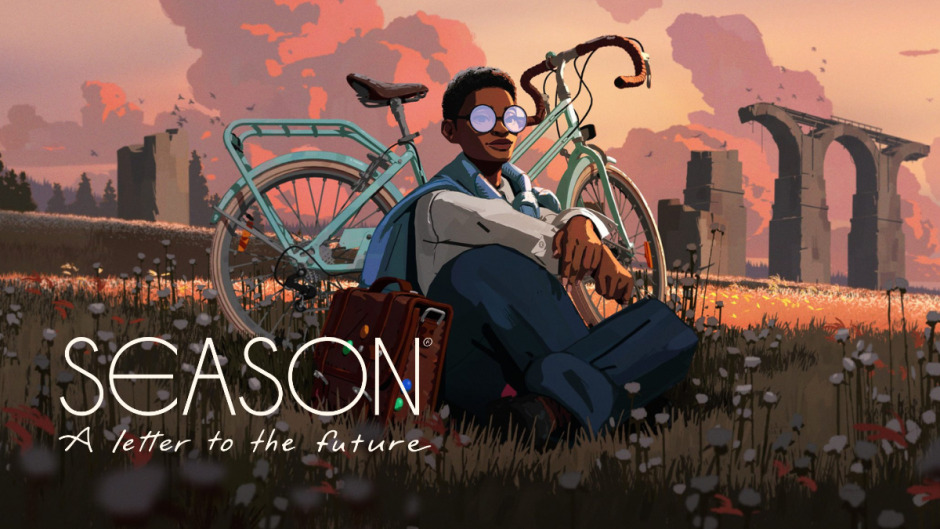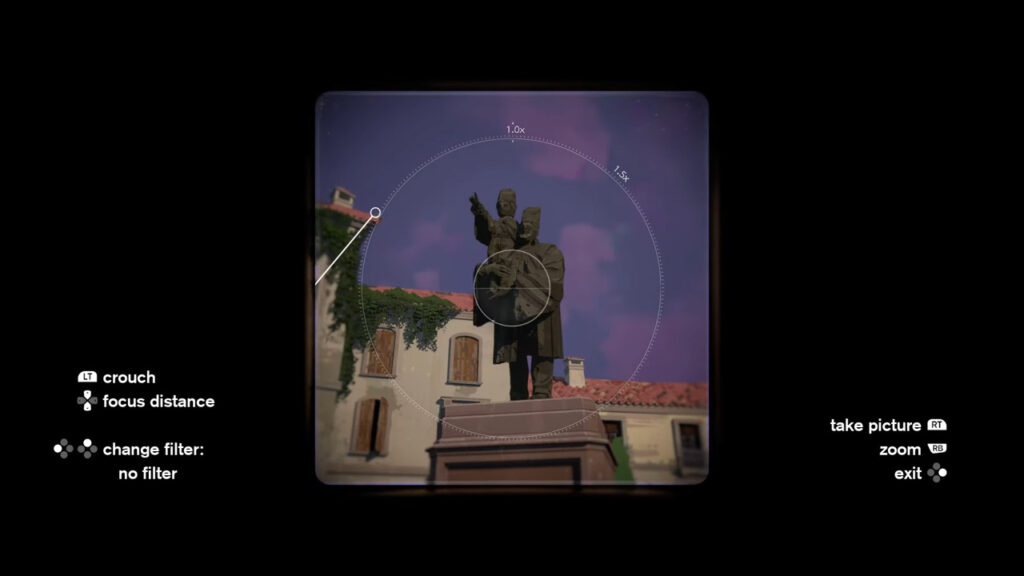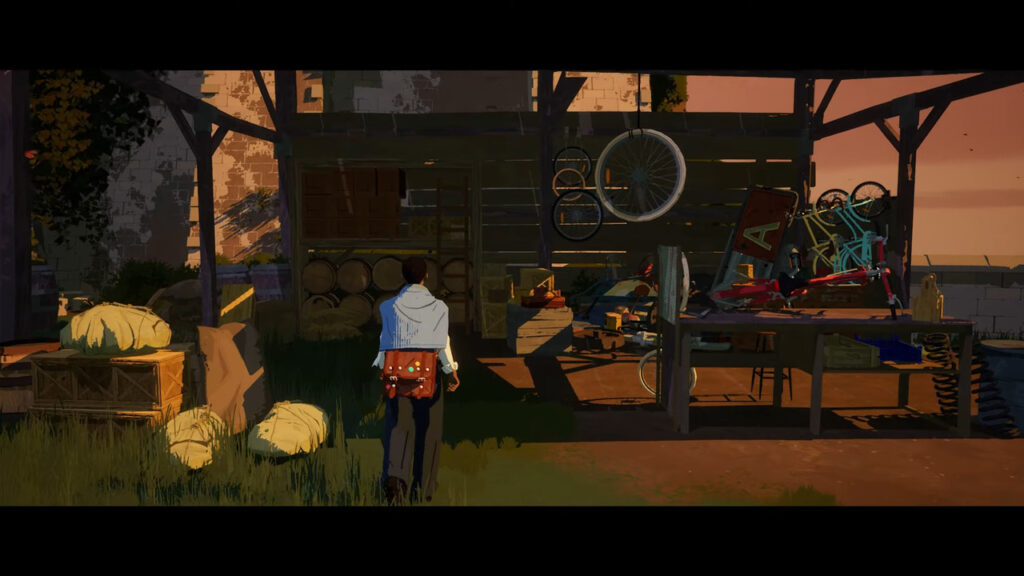
Developer: Scavengers Studio
Publisher: Scavengers Studio
Platform: PC, PS4, PS5
Tested on: PC
Season: A Letter to the Future – Review
Occasionally, a game comes around that transcends the typical notions of gaming, instead resembling an interactive piece of art. Good examples of this include Mythic Ocean and Endling. Season: A Letter to the Future, the subject of today’s review, certainly has everything it needs to join that lineup. At its core lies a tale about wanting to leave a legacy and the transience of mankind, neatly wrapped up in beautiful visuals and simplistic yet engaging gameplay. It’s also a game where the actual journey is more important than the destination. If that sounds like something that might be up your alley, then feel free to join us as we take a look at whether that journey is worth embarking on.
Story
In the post-apocalyptic world of Season, a season isn’t the same as those that we experience yearly. Instead, a Season is an undefined historical era, bookmarked by cataclysmic events like war or natural disasters. In the current Season, what remains of the human population has restricted itself to the relative safety of isolated settlements, as the outside world is a dangerous wasteland that nobody has ventured into for decades, out of fear of losing their minds. This is a world where Gods are real and magic exists, and lingering outside of the safe havens of mankind for too long will gnaw at your sanity. Enter our protagonist Estelle, who defies reason and decides to venture outside with the goal of preserving what the world around her is like so that future generations may learn from it. After Estelle’s best friend predicts that the current Season is about to end, Estelle arms herself with a journal and sets out to document what she can before the Season is over.
The story that unfolds during her journey is one of nostalgia and melancholy, about memories and the importance of the past. Estelle will meet all kinds of individuals on her journey, and they will share their own views on what Estelle attempts to do, which in turn affects how Estelle sees her journey. She ultimately wants to deliver the journal to a museum for posterity. The interesting thing here is that Season is actually presented in the form of a flashback, as the story isn’t told through Estelle herself but by someone that looks back on the journey by reading through the journal. It takes a bit of suspension of disbelief, as the information in the journal itself is compiled by the player and the idea of coming across a landmark but not documenting it stands in contrast with the person reading the journal still being able to visualize it in their mind’s eye. However, the way the story is told still makes sense, as it further emphasizes Season‘s core message.
Graphics
An incredible amount of care was put into shaping the world of Season. The environments are lovingly rendered in a picturesque art style, eschewing photorealistic graphics in favor of something that feels like a scaled-down version of Breath of the Wild. Dynamic lighting captures the time of day, and of course, this has an impact on how your in-game photos look. This is a beautiful game, although the visual impact is plagued by a handful of performance issues like stuttering, especially while using the in-game camera. Of note is that the game takes into account potential motion sickness by including the option to display a dot in the center of the screen that your eyes can focus on. While this wasn’t a necessity for us, it does show that Scavengers Studio is aware that the dynamic camera can be nauseating for some, and it’s nice to see that they cared enough to offer a solution.
Sound
It’s highly recommended that you use headphones while playing Season, as the game makes use of Tempest 3D AudioTech, which allows for so-called spatial dimensions of sound. In practice, this means that sounds are rendered in relation to where Estelle is, and this becomes an important gameplay element as well, as she is equipped with an audio recorder to add entries to her journal. The game is narrated, albeit not by Estelle herself, but by an unseen character from the future that is reading through the journal. It’s an interesting idea but in practice, it disconnects the narration from the on-screen events, and a significant chunk of the game’s narrative angle falls flat because of this.
Gameplay
While Season’s main raison d’être is to deliver a compelling narrative, the gameplay centers around exploration and documenting your findings in your journal. Technically, Season could be described as a walking sim, but that would be dismissive of just how much of a joy it is to explore your surroundings. The valley that the game is set in is littered with the remains of what the world used to be like. You have a limited number of tools with which you attempt to preserve the world around you for posterity. These include your journal, of course, but also a camera, an audio recording device, and a reliable but dinky bicycle. Using these tools, you travel between key points and human settlements, exploring and documenting to your heart’s content in between. The valley itself isn’t as massive as many open-world games, but the sheer amount of care that went into detailing everything ensures that the locations you visit feel alive. Season may be a one-trick-pony when it comes to gameplay, but it definitely nails its trick for the most part.
Unfortunately, the impact of Season’s worldbuilding is diminished by its insistence on audibly telling its story. The continuous presence of the narrator feels like a distraction and undermines a feeling of immersion. If only Scavengers Studio had stuck to the principle of ‘show, don’t tell’ and had opted to let the world tell its story through its visuals instead of feeling the need to over-explain itself. The game doesn’t let the player interpret things on their own, and the matter-of-fact narration is devoid of heart and humor, unfortunately. Season is at its best when there is silence, and you are able to soak in the inherent beauty and peacefulness of its post-apocalyptic environments at your own pace. Admittedly, it’s difficult to find the right balance between giving the player complete freedom and ensuring that the actual story itself isn’t lost, but this is one case where a ‘less is more’ approach would have made more of an impact.
Fortunately, the journal is handled a lot better than the ham-fisted storytelling. Curating your journal is an integral element of Season, and great care was put into ensuring that players can really make it their own. Pictures and audio recordings are created by the player, and you’re able to select what goes where on the pages. You can opt to create a focused journal with tight layouts, or you can try to cram in as many details as possible, even adding items like stickers and decorations that are unlocked as pages are filled with more entries. At the end of a playthrough of Season, no two players’ journals will look exactly the same. Of note is that although the game tries to incentivize you to seek out specific landmarks through sidequests, none of these are mandatory to complete the game. In fact, you could make it to the end credits without ever opening your journal, although then you’d have to ask yourself why you’re playing Season in the first place.
Season isn’t a very long game, although how long it takes you to complete it depends on how much time you’re willing to spend on painstakingly filling in your journal. The main story pushes things forward in a linear way, despite freedom and exploration being key themes here. As such, Season’s replayability is limited. Additionally, despite the post-apocalyptic setting, there isn’t a focus on action here, and the world is presented as a place of beauty and tranquillity instead. It makes sense within the scope of the story that Season is trying to tell, but all of these elements combined do make for a game that is only limited to a very specific niche of players. If you happen to be in that niche, you will absolutely adore what’s on offer here. At its highest, Season is a piece of art that lets you reflect on your own past and the inherent feeling of wanting to leave a legacy. If that’s an approach that resonates with you, then by all means, we encourage you to give Season a shot, but if you’re simply looking to blow off some steam and unwind with a video game, then we suggest seeking your thrills elsewhere.
Conclusion
It’s hard to fully grasp Season without experiencing it for yourself, because the game expects you to make the journey your own. This is of course done by crafting the titular Letter to the Future, in the form of your journal. Season is mostly successful in the message it attempts to convey, although a more subtle approach to its main story would have done wonders compared to the forceful way that it is presented now. Don’t get us wrong, there is poetic beauty to be found in the narrative itself, but a whole lot of what Season wants to be feels counterintuitive to what it actually is. If you can look past its shortcomings, there’s a lot to love here, even if the game isn’t going to appeal to everyone.
Season: A Letter to the Future - Review,









No Comments